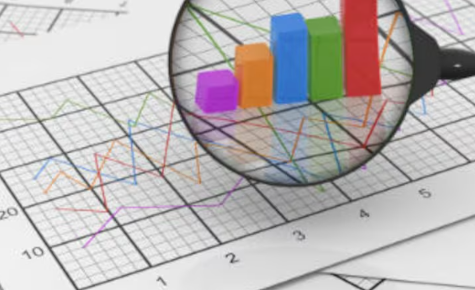
The Effects of Social Media on Mental Health
Human beings were created as social entities. We enjoy keeping in touch with each other, whether it is physical meetings, phone calls, video calls, or even virtually connected over the internet. The internet has certainly made this a lot easier than what was previously even imaginable. High-speed internet connections are now more accessible than ever, in affordable pricing like Xfinity Internet prices, which help attract more and more customers. You can shop on the internet, connect with loved ones, study, and even earn online. We live in times where the entire world is a global village, and everything and everyone is just a mere click away.
Social media is reigning the highs of the internet skies. The quest for a social connection that began with Orkut and Myspace in the late 1990s has now come a long way. There are multiple social media platforms today, with Facebook, Twitter, Instagram, Snapchat, Reddit, and Pinterest among the most popular ones. And the wheels of evolution continue turning. But what does this new age of social media mean for us as a community as a whole? In this article, we discuss some of the effects of social media on mental health and what we can do to ensure that this relationship is as healthy as possible.
What Runs the Social Media Game?
These days most of us have ready access to social media. We always have our phones with us, we have tablets and laptops all round the clock. And more often than not, you will find yourself scrolling aimlessly through your social media, not even sure what you were looking for. The constant notifications popping up on your phone can mess with your concentration and focus to the point where it just is difficult to do anything else.
The whole point of social media platforms, websites, and even applications is to keep you online as much as possible. They steal your attention so much so that you keep checking them for no apparent reason. Of course, they make their money through you. They show you advertisements of things you won’t even realize you needed and then you just end up buying something. Which may or may not result in a little bit of regret later. But, alas, the cycle continues.
The Positive Effects of Social Media on Mental Health
The thought behind developing a social media platform may not be all sunshine and rainbows, but it does work well. Everything has been created for a reason and it serves that purpose, fully. Social media may not give you the pleasure of a physical meeting with someone but it definitely gives you a certain peace. As long as you are using social media as you should and getting enough off-screen time, social media can be beneficial in a bunch of ways. It can also be rewarding to your mental health to have a few social media connections at hand. Some of the positive effects of social media in our lives include;
- Communicate with your friends and family from anywhere around the world
- Find new interests, and make new friends and people from across the globe
- Raise awareness on sensitive issues, worthwhile topics that need world recognition
- Offer support to or seek support during tough times too and from your family or friends
- Social media can be a great place to start with your self-expression. Whether you love writing poetry, painting, or even making music, social media has got you covered.
- Learn and educate yourself online. There are multiple avenues on social media sites where you can learn about new things.
- Find people of your kind. This is especially helpful for people who are combating issues like social anxiety, alcoholism, or anything like that. Online support groups exist and are quite helpful.
The Negative Effects of Social Media on Mental Health
Social media is a relatively newer piece of technology work. Scientists are still working to figure out what the long-term effects of increased social media addiction may be. However, it is no secret that social media does mess with the human brain, in more ways than one. There are several studies linked to an aspect of social media that promotes anxiety, depression, loneliness, and even self-harm.
And, since internet pricing models like Xfinity internet prices and others, are so market competitive and accessible to everyone, these issues continue to worsen over time.
So, what are the negative effects of social media on our mental health? Well, some of the most common problems are listed below.
- Everything you see on the internet is not true. But that does not stop people from believing everything they see. Social media has set some rather unreal standards when it comes to body image and lifestyle. When people see these things online they tend to believe that they are not pretty, or that they have inadequate body dimensions or not enough money. That tends to spark anxiety and depression in a lot of youth today.
- Fear of missing out (FOMO) is a real thing. We have all experienced it at some point. Seeing people or friends having a time of their life, on a vacay or even just out to dinner can sometimes be very isolating. You can feel left out, lonely and it can also be bad enough to trigger anxiety issues, especially if you have an underlying problem. FOMO can force you into unhealthy habits, such as checking your phone every few minutes and replying to each and every alert and notification. If left unchecked, FOMO can spiral out of control and lead to devastating effects.
- While most adults do not face issues like this, a large part of our teenage population still struggles with oversharing. It could be with an online friend or a potential partner. While oversharing is a problem in itself, since you give away too much info over the internet, sometimes it can get even worse. And that happens when young people share intimate details, compromising pictures and other things over the internet. Of course, the internet is not always a safe place to be. And if your conversations fall in the hands of a cybercriminal, things can get very ugly, very quickly.
- Cyberbullying is a very common problem, especially for children transitioning into teenage life. It is an age where everything matters a lot, even a stranger’s comments. The feeling of inadequacy increases with time, as people joke on their account. While it may appear as harmless banter on the surface, cyberbullying is a harmful thing and can lead to self-harm in teens, as well as suicidal thoughts.
- Lack of empathy and self-centeredness is also a potential side effect of increased social media use. People who share too many selfies and other things online may become too self-absorbed to notice what is happening around them. This is both isolating as the loneliness sets in and can distance people from real-life relationships.
Conclusion: Is Social Media More Dangerous than It Is Useful?
The Internet has made the world so much better, with multiple things to help ease life. Internet service providers have good offers like the flexible Xfinity Internet prices that assist you to connect to the internet at any point in time. Social media too aids us in connecting with people we love and care for. And everything is great when used in moderation.
Of course, overuse of anything is not good. When you use social media too much, you get drained of emotional energy, you feel lonely and isolated and the FOMO just keeps hitting you hard. However, as long as you identify the negative triggers and keep them to a low, it is not bad to use social media. Just gauge your use, stick to a schedule, and cut back on your social media time.
You will see how your life takes a turn for the better!



